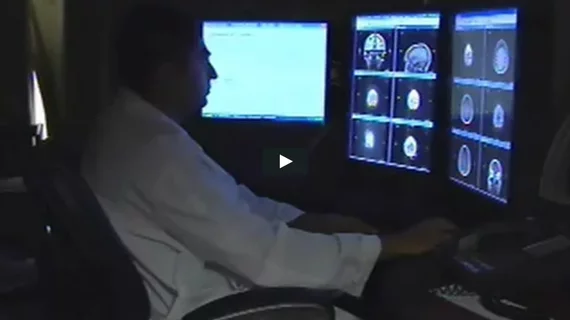Radiologists can reclaim an hour every day with AI assistance
Radiologists can reclaim up to an hour of their time every day by incorporating the use of artificial intelligence into certain clinical tasks.
That’s according to a release published by the American Roentgen Ray Society that touts the results of their study involving the workflows of 390 patients who underwent outpatient chest CT scans at the Medical University of South Carolina from January 19–28 of 2021. Using commercial software (AI-Rad Companion) as an assistive device, three cardiothoracic radiologists shaved an average of 93 seconds per exam off of their interpretation times.
“This is the first study to our knowledge to assess the impact of an AI support platform on chest CT interpretation times in a real-world clinical setting,” corresponding author U. Joseph Schoepf, from the Medical University of South Carolina said. “The platform’s integration into clinical workflow resulted in a mean reduction in interpretation times of 22.1% among three cardiothoracic radiologists for whom the AI results were made available.”
ARRS indicates that the AI software assisted in various tasks, such as segmenting, labeling and measuring normal structures, which provided an automated analysis of pulmonary, cardiac and musculoskeletal findings. In addition to this, the software was able to detect, label and measure abnormalities.
Researchers compared interpretation times both with and without the use of AI assistance using a stopwatch. Reductions in read times were between 63 and 123 seconds per exam, or 22.1% per exam. These time differences were found to be consistent in studies regardless of the use of contrast as well, with interpretations taking 20% and 24.2% less time for contrast-enhanced and non-contrast scans.
“If assistance from automated AI results can save one hour of interpretation time each day as estimated from our results,” the authors of the study shared, “then radiologists could devote this time to other activities, whether additional clinical tasks such as communicating findings to patients and referring physicians, or administrative, education, and research responsibilities.”
Related artificial intelligence news:
SIIM 2022: Implementing AI in low-resource countries
Predicting healthcare utilization in COPD patients using CT and machine learning
AI helps novice medical assistants perform high-quality echocardiograms
AI model could open doors for greater access to obstetric ultrasound

